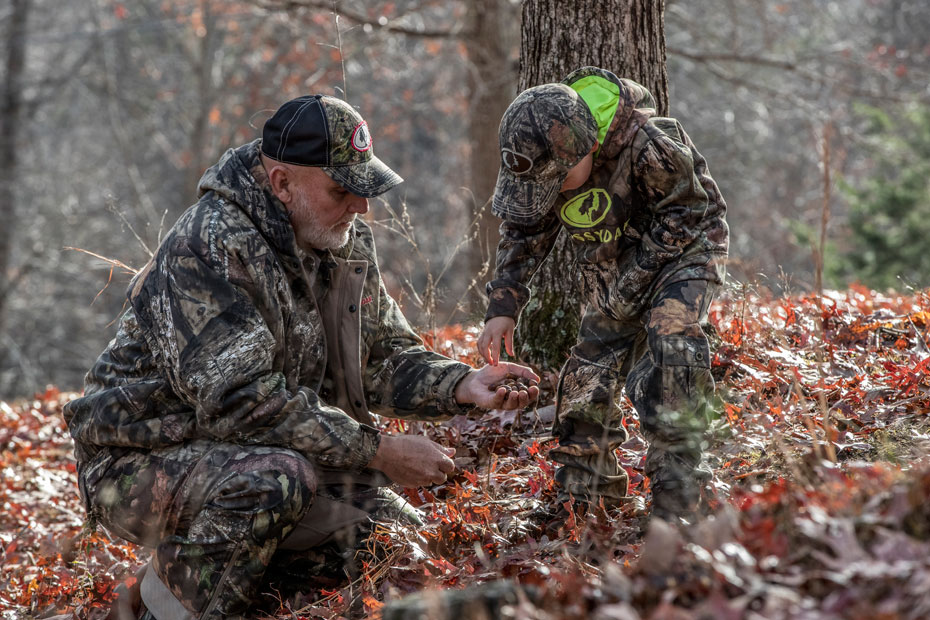Why Learning to Hunt is an Essential Skill for Every Man
Hunting, an activity deeply rooted in our ancestral history, is an essential skill that every man should learn in today’s modern society. Beyond its practical implications, hunting offers a multitude of benefits that extend far beyond the pursuit of game. From fostering a connection with the natural world to honing physical and mental abilities, learning to hunt cultivates a unique set of skills and experiences. This article explores the importance of hunting in contemporary society, delves into the various advantages it brings, and emphasizes the ethical responsibility and personal growth that come with embracing this ancient practice.
The Importance of Hunting in Modern Society
Preserving Cultural Heritage
Hunting is an age-old tradition that has been passed down from generation to generation, shaping the cultural heritage of mankind. Learning to hunt allows us to connect with our ancestors and preserve their knowledge and skills. It’s a way of honoring our roots and keeping alive a part of our history that might otherwise be forgotten.
Managing Wildlife Populations
In modern society, hunting plays a crucial role in managing wildlife populations. By carefully regulating hunting seasons and quotas, we can help maintain a balance in ecosystems. This balance is essential in preventing overpopulation, which can lead to scarcity of resources and endanger the overall health of an ecosystem. Learning to hunt responsibly ensures that we contribute to the conservation efforts and help preserve the delicate balance of nature.
Developing a Connection with Nature through Hunting
Immersing in the Natural Environment
Hunting offers a unique opportunity to immerse ourselves in the beauty and tranquility of the natural world. It allows us to escape the hustle and bustle of modern life and find solace in the great outdoors. As hunters, we get to witness breathtaking sunrises, revel in the vibrant colors of changing seasons, and find peace in the stillness of the wilderness.
Becoming an Observer of Wildlife
Hunting also encourages us to become keen observers of wildlife. To track and successfully hunt game, we must learn to understand animal behavior, study their habitats, and interpret signs left by their movements. This heightened awareness of nature not only enhances our hunting skills but also fosters a deeper appreciation for the interconnectedness of all living beings.
The Physical and Mental Benefits of Learning to Hunt
Improving Physical Fitness and Endurance
Hunting is a physically demanding activity that tests our strength, agility, and endurance. Whether we’re hiking through rugged terrains or tracking game for hours, hunting provides a full-body workout that keeps us fit and active. The physical challenges of hunting help to strengthen muscles, improve cardiovascular health, and increase overall fitness.
Enhancing Mental Focus and Concentration
Hunting requires a high level of mental focus and concentration. The ability to track, predict, and make split-second decisions sharpens our cognitive skills. In the midst of nature, we must remain alert and fully present, honing our senses and developing a heightened sense of awareness. These mental benefits extend beyond the hunting grounds and can positively impact various aspects of our lives.
Cultivating Survival Skills through Hunting
Mastering Tracking and Navigation Techniques
Learning to hunt also equips us with valuable survival skills. Tracking animals and navigating through unfamiliar terrains sharpen our abilities to read signs, interpret trails, and find our way in the wilderness. These skills are not only essential for hunting success but also crucial in emergency situations or when exploring nature off the beaten path.
Acquiring Fire-making and Shelter-building Skills
Hunters often find themselves spending extended periods in the wild. As a result, they acquire valuable skills in fire-making and shelter-building. These skills are vital for survival, enabling hunters to stay warm, dry, and protected from the elements. Whether we’re camping in the backcountry or faced with unexpected outdoor situations, these skills serve us well beyond the pursuit of game.
Learning to hunt is not just about aiming at a target; it’s about immersing ourselves in nature, preserving our cultural heritage, and acquiring skills that connect us with our primal instincts. So, embrace the call of the wild, and let hunting become an enriching and rewarding journey of self-discovery.
Ethical Hunting Practices
Understanding and Respecting Wildlife and Ecosystems
When it comes to hunting, it’s not just about firing a gun and bagging a trophy. It’s about understanding and respecting the delicate balance of wildlife and their ecosystems. Responsible hunters take the time to study and learn about the animals they pursue, their habitats, and their behaviors. By gaining this knowledge, hunters can ensure they make informed choices that contribute to the long-term well-being of the wildlife and the environment.
Adhering to Fair Chase Principles
Fair chase is an essential principle that separates ethical hunters from those who simply seek an easy kill. It involves hunting in a manner that gives animals a fair chance to escape and utilizes hunting methods that mimic natural predator-prey relationships. Ethical hunters understand the importance of respecting the instincts and abilities of the animals they pursue, ensuring a fair and ethical hunting experience for all parties involved.
Learning to Hunt: A Journey of Self-Discovery and Personal Growth
Building Confidence and Self-Reliance
Learning to hunt is not just about acquiring the skills to track and take down game; it’s about building confidence and self-reliance. There’s a unique sense of empowerment that comes from knowing you can provide for yourself and your loved ones through the skills you’ve honed in the hunting field. It’s a journey that challenges you to push your boundaries and discover what you’re truly capable of.
Developing Patience and Persistence
If there’s one thing hunting teaches you, it’s patience. Hours of waiting, silently observing, and navigating through the wilderness can test even the most impatient among us. But it is through this waiting game that hunters develop a deep sense of patience and persistence. These qualities can translate into other areas of life, helping individuals tackle obstacles with a calm and determined mindset.
Passing Down the Tradition: Teaching Hunting to Future Generations
Mentoring and Guiding Youth Hunters
Passing down the tradition of hunting to future generations is a way of preserving cultural heritage and creating bonds that span generations. By mentoring and guiding youth hunters, experienced hunters can share their knowledge, skills, and appreciation for the outdoors. It’s an opportunity to instill in them a deep respect for nature and wildlife, ensuring the continuation of responsible hunting practices for years to come.
Instilling Respect for Nature and Wildlife
Teaching hunting to future generations goes beyond just the technical aspects; it’s also about instilling a profound respect for nature and wildlife. By immersing young hunters in the natural world, they learn to appreciate the interconnectedness of all living things. This understanding fosters a sense of stewardship and a desire to protect the environment, ensuring the preservation of wildlife habitats and ecosystems.
Overcoming Challenges and Building Resilience in the Hunt
Dealing with Adverse Weather Conditions
When it comes to hunting, Mother Nature doesn’t always play nice. Adverse weather conditions are a common challenge that hunters face, from scorching heat to bone-chilling cold, torrential rain, or snowstorms. Facing these conditions head-on requires adaptability, preparedness, and the ability to stay focused. It’s an opportunity to test your resilience and prove that your determination to hunt can withstand any obstacle.
Handling Disappointment and Failure
Hunting is not always a guaranteed success. There will be times when you carefully plan and execute your hunt only to come back empty-handed. Handling disappointment and failure is a skill every hunter must develop. It teaches you to appreciate the experience itself, the connection with nature, and the lessons learned along the way. After all, it’s not always about the kill but about the journey and the moments that shape us as hunters and as individuals.
In conclusion, learning to hunt is not just about acquiring the skills to track and harvest game. It is a journey of self-discovery, a way to connect with nature, and a means of preserving our cultural heritage. By embracing hunting, men can develop physical and mental resilience, cultivate survival skills, and become responsible stewards of the environment. Moreover, passing down this tradition to future generations ensures that the valuable lessons and values associated with hunting are perpetuated. So, let us recognize the significance of this essential skill and embark on the rewarding journey of learning to hunt.





